When it comes to diet and cancer, there are some things that are straightforward, like cutting out sugar, and then there are some that are a little less so. Carbs is definitely an area where things get a little less black and white, and it will often come down to which diet you decide to follow. If you choose keto, the recommendation will likely be to keep your carbs at or under 25-50g a day. If you go vegan, you will likely have much more than that because of the amount of beans and legumes you will be eating. So, what to do? As with so much when it comes to integrative cancer care, it’s about experimenting and testing to find what works best for you and your body. To help with this, today I wanted to share with you the general carb guidelines I follow, discuss why some carb choices are better than others, and offer my fav carb choices to add to your diet.
Let’s jump in!
Why Should We Be Careful With Carbs?
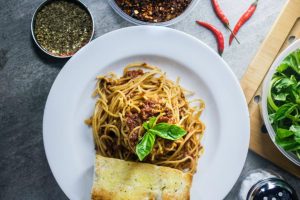 The important thing to remember with carbs and cancer is that they are high in starch and starch is a polysaccharide, long chains of sugar molecules linked together. Therefore, when we eat starch and carbs, particularly refined carbs, they get broken down into sugar in our body. This effect is worse with refined carbs, like white flour and white rice, because they have been processed to remove a lot of the fibre. Due to being low in fiber, they are digested quickly, so eating them can cause major swings in blood sugar levels [1], and we know by now that cancer loves sugar. If you do have a refined carb, eat it with something high in fat, fibre, and/or protein to slow digestion and those spikes. Regardless of the diet you choose, keep your carbs on the low side. As a general rule, keep your carbs low and your protein and good fats on the moderate to high side [2]. There is conflicting info about this for sure (as with so much when it comes to diet and cancer), with some research saying high fat can make cancer worse. But, then there is the therapeutic keto diet for cancer, a super popular choice, which has fat as the highest macronutrient, and many people do extremely well on it with their cancer. So once again, it’s about experimenting and finding what ratios work for you, but definitely keep your carbs healthy and on the lower side. I try to stick to ½ cup of whole grains or sweet potato each day. Some good mainstream choices are brown rice, quinoa, and oatmeal.
The important thing to remember with carbs and cancer is that they are high in starch and starch is a polysaccharide, long chains of sugar molecules linked together. Therefore, when we eat starch and carbs, particularly refined carbs, they get broken down into sugar in our body. This effect is worse with refined carbs, like white flour and white rice, because they have been processed to remove a lot of the fibre. Due to being low in fiber, they are digested quickly, so eating them can cause major swings in blood sugar levels [1], and we know by now that cancer loves sugar. If you do have a refined carb, eat it with something high in fat, fibre, and/or protein to slow digestion and those spikes. Regardless of the diet you choose, keep your carbs on the low side. As a general rule, keep your carbs low and your protein and good fats on the moderate to high side [2]. There is conflicting info about this for sure (as with so much when it comes to diet and cancer), with some research saying high fat can make cancer worse. But, then there is the therapeutic keto diet for cancer, a super popular choice, which has fat as the highest macronutrient, and many people do extremely well on it with their cancer. So once again, it’s about experimenting and finding what ratios work for you, but definitely keep your carbs healthy and on the lower side. I try to stick to ½ cup of whole grains or sweet potato each day. Some good mainstream choices are brown rice, quinoa, and oatmeal.
What About Beans?
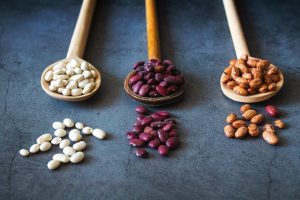 Legumes and beans are an area of contention. If you choose a keto diet, you will need to limit the amount of these that you eat because of the carb content. However, these are considered healthy carbs due to their higher protein and fibre levels, which slow digestion and thereby cause lower blood sugar spikes, and there are plenty of cancer patients and thrivers not on keto who include them in their diet, myself included. For example, if you are on a vegan or other diet, you will likely be eating more of these foods. I strike a balance and have beans/legumes about 3 times a week, wild fish 2 times a week, and organic, pastured chicken the other 2 days. Everything in moderation has worked well for me as a general rule.
Legumes and beans are an area of contention. If you choose a keto diet, you will need to limit the amount of these that you eat because of the carb content. However, these are considered healthy carbs due to their higher protein and fibre levels, which slow digestion and thereby cause lower blood sugar spikes, and there are plenty of cancer patients and thrivers not on keto who include them in their diet, myself included. For example, if you are on a vegan or other diet, you will likely be eating more of these foods. I strike a balance and have beans/legumes about 3 times a week, wild fish 2 times a week, and organic, pastured chicken the other 2 days. Everything in moderation has worked well for me as a general rule.
My Favs!
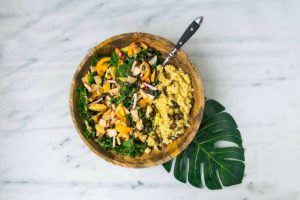 My favourite carb choices are brown or wild rice, oats, and then two that you potentially haven’t heard of before; I hadn’t before cancer! Those two are sorghum (which is kind of like barley) and millet (which is kind of like couscous), and both are super tasty. These two grains are insulin resistant, which means they don’t cause much of a blood sugar spike and I can therefore enjoy them with a lot less guilt than their mainstream counterparts. Additionally, both sorghum flour and millet flour are great for baking, along with other insulin resistant starches like green banana flour and cassava flour, and they make it so much easier for me to enjoy some baked goods in my life. I order both on Amazon, but some health food stores will carry them. I have recently learned that there is some evidence that millet can block nutrient absorption if you eat it a lot, causing issues with iodine uptake and the thyroid, so I only have it once in a while or use its flour in my bread if I run out of something else. Basically, you don’t wanna eat it every day. And another note here that for all grains, you should always aim for organic, as many grains tend to get heavily sprayed with glyphosate, even these alternative ones.
My favourite carb choices are brown or wild rice, oats, and then two that you potentially haven’t heard of before; I hadn’t before cancer! Those two are sorghum (which is kind of like barley) and millet (which is kind of like couscous), and both are super tasty. These two grains are insulin resistant, which means they don’t cause much of a blood sugar spike and I can therefore enjoy them with a lot less guilt than their mainstream counterparts. Additionally, both sorghum flour and millet flour are great for baking, along with other insulin resistant starches like green banana flour and cassava flour, and they make it so much easier for me to enjoy some baked goods in my life. I order both on Amazon, but some health food stores will carry them. I have recently learned that there is some evidence that millet can block nutrient absorption if you eat it a lot, causing issues with iodine uptake and the thyroid, so I only have it once in a while or use its flour in my bread if I run out of something else. Basically, you don’t wanna eat it every day. And another note here that for all grains, you should always aim for organic, as many grains tend to get heavily sprayed with glyphosate, even these alternative ones.
Grains, Beans, and Pressure Cooking: Why??
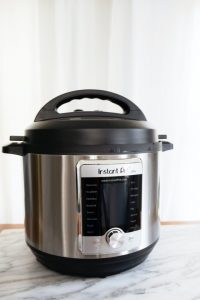 An excellent book to read for many reasons is The Plant Paradox, by Dr. Steven Gundry. Dr. Gundry is a leading US cardiologist, who started experimenting with diet and his bypass patients, and his book outlines this work and his resulting work with proteins called lectins. Naturally occurring in many fruits, vegetables, and legumes, lectins contribute to inflammation in your body, among other things. When Dr. Gundry started putting his patients on a low-lectin diet while they waited for their bypass surgery, when it came time for their surgery, many no longer needed it thanks to the diet! He then started expanding his research and looking at the effect lectins have on other diseases, discovering that because they contribute so heavily to the promotion of systemic inflammation, they also contribute to the development and progression of many chronic diseases that thrive in inflamed environments, including cancer. However, there is some good news when it comes to lectins! Pressure cooking destroys them, so get yourself an Instant Pot or other pressure cooker and, when possible, cook your grains, legumes, and nightshades in it.
An excellent book to read for many reasons is The Plant Paradox, by Dr. Steven Gundry. Dr. Gundry is a leading US cardiologist, who started experimenting with diet and his bypass patients, and his book outlines this work and his resulting work with proteins called lectins. Naturally occurring in many fruits, vegetables, and legumes, lectins contribute to inflammation in your body, among other things. When Dr. Gundry started putting his patients on a low-lectin diet while they waited for their bypass surgery, when it came time for their surgery, many no longer needed it thanks to the diet! He then started expanding his research and looking at the effect lectins have on other diseases, discovering that because they contribute so heavily to the promotion of systemic inflammation, they also contribute to the development and progression of many chronic diseases that thrive in inflamed environments, including cancer. However, there is some good news when it comes to lectins! Pressure cooking destroys them, so get yourself an Instant Pot or other pressure cooker and, when possible, cook your grains, legumes, and nightshades in it.
….
With this info and my tips, you can hopefully start incorporating healthier carb choices into your diet and start to reduce the amount of carbs that you are eating each day. You don’t have to cut them out entirely, you just want to make sure you are choosing the healthiest types, buying them organic, pressure cooking them if possible, and saving those refined carbs for special occasions and cheat days. If you have any questions at all about carbs or my anticancer diet in general, please leave a comment below or post in the Solis Cancer Community FB group!
Happy Healing ❤️
References
- High glycemic index foods, overeating, and obesity – https://pubmed.ncbi.nlm.nih.gov/10049982/
- A low carbohydrate, high protein diet slows tumor growth and prevents cancer initiation – https://pubmed.ncbi.nlm.nih.gov/21673053/
- The Plant Paradox – https://amzn.to/3cy31m7

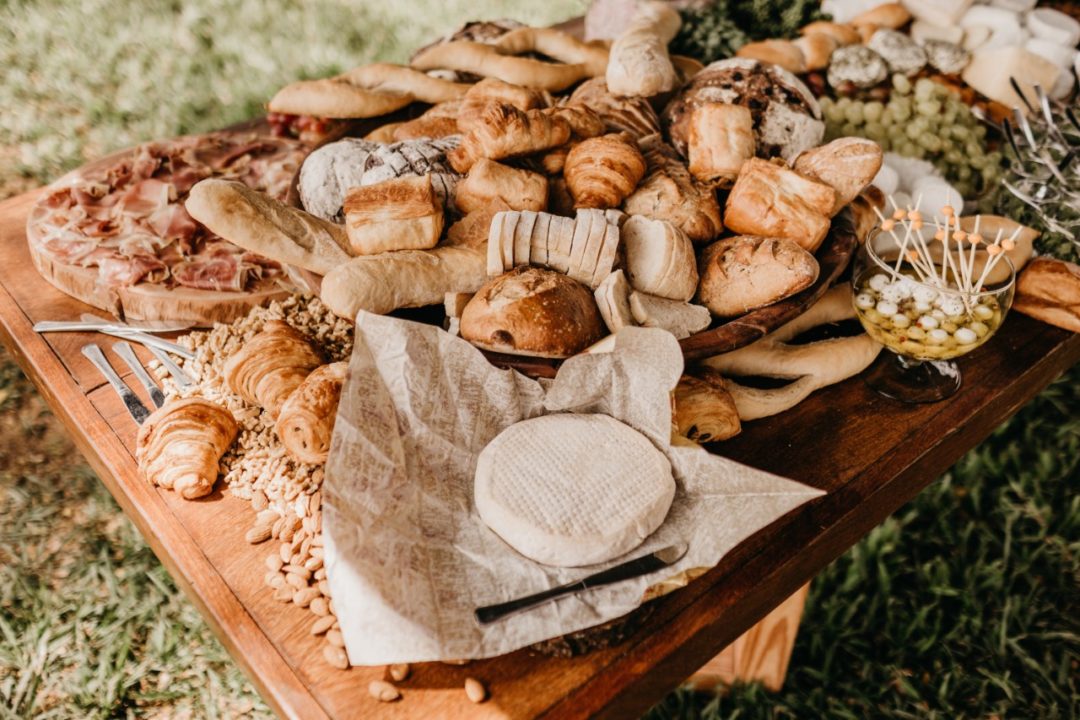


0 Comments